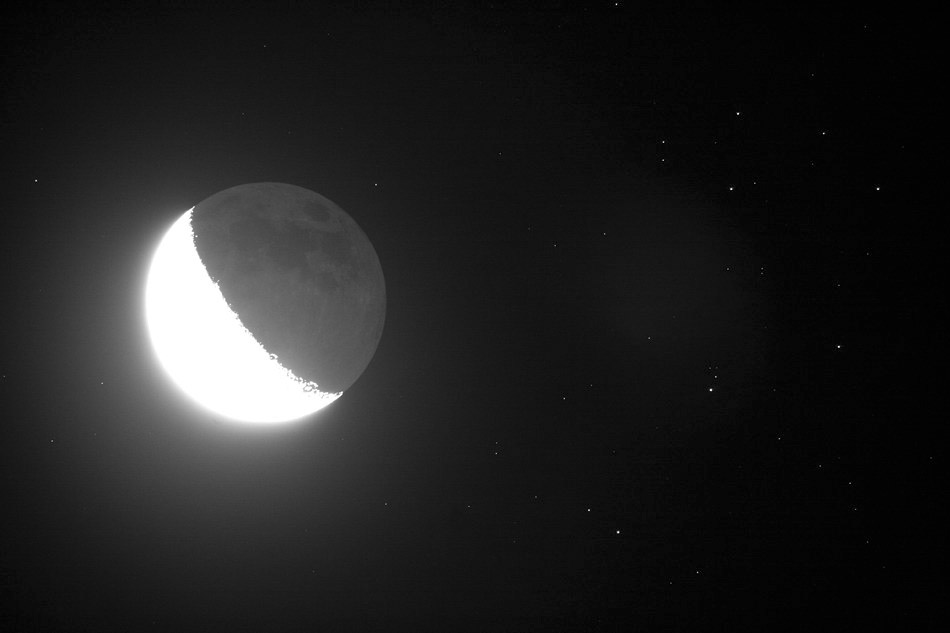
image by Elias Chasiotis, Markopoulo, Greece
Its easy to see why observers of deep sky, or even bright sky, objects don’t care much for the Moon. Elias’ view of the last quarter Moon passing through the Pleiades dramatically shows that the Sunlit side brightens the nearby sky so much that even bright stars are hardly visible. And a exposure necessary to capture the bright stars nicely shows the Earthlit piece too. I am very glad we have this bright light in the night sky - there are more details to see in that half degree of reflected light than in the rest of the universe combined. A slight exaggeration, perhaps, but for the observer looking though an eyepiece the universe is smudges and our Moon is a magnificent complexity of detail.
Technical Details:
07 August 2007, 02:38 UT. William Optics Zenithstar 105, Canon EOS 400D, William Optics 2″ 0.8 focal reducer.
Yesterday's LPOD: An Outpost of History
Tomorrow's LPOD: Feastland
COMMENTS?
Register, Log in, and join in the comments.



